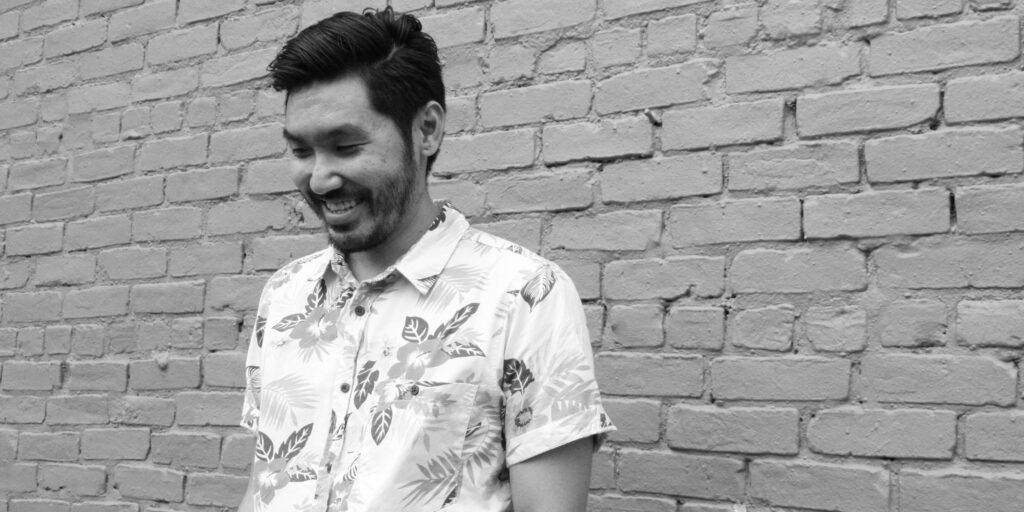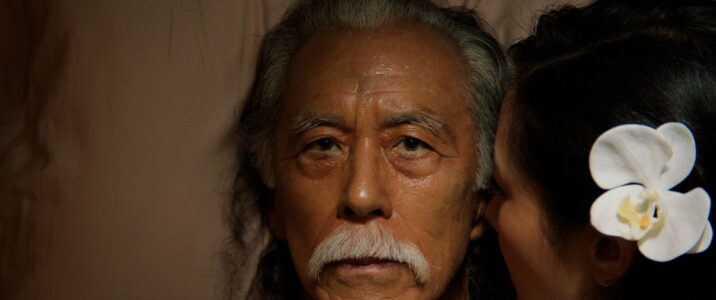For its first virtual edition, Alex is publishing an ongoing series of his high (and low) lights at this year’s Sundance Film Festival.
Masao Matsuyoshi (Steve Iwamoto) lives alone. In a small cabin near the ocean, he has only his dog to keep him company in darkened rooms with shuttered windows. His frail health has prompted him to look upon the past, and he starts having visions of his late wife (Constance Wu) emerging out of the old tree in his front yard. He struggles reconciling with his past sins in preparation for taking the next step towards the afterlife in Christopher Makoto Yogi’s semi-biographical, Hawaiian-set drama, I Was a Simple Man.
Yogi’s tale harbors an eerie, surreal tone which conveys the ephemeral mortality of both his protagonist and his surroundings. “I remember when this was all beautiful green,” an old friend notes as they both gaze out at the city over a parking lot balcony in an early scene. Man’s subject matter, as well as tone, evoke the work of Thai auteur Apichatpong Weersethakul and his interests in nature and the supernatural featured in Cemetery of Splendor and Uncle Boonmee as tools for analyzing his milieu’s sociopolitical and mythic history. Yogi does likewise for Hawaii by addressing political refugees in Japan and China as well as referencing Hawaii’s ascension to statehood in 1950.
What is further accentuated here than in Weersethakul’s films, though, is the theme of familial relationships, as Masao’s guilt lies primarily with his neglectful parenting, attributed in part to the engulfing grief borne by the premature death of his wife, Grace, around the same time as Hawaii’s admission to the United States. “I’m no dad,” his younger self (Tim Chiou) confesses to a drinking buddy, “I’ll just screw it up.” His predilections for getting intoxicated at the local bar and playing pool for cash fail to paint himself as an ideal paternal figure for his children.

As adults, his three children are quietly contending with their own emotional scars. Henry lives six hours away and has hardly any contact with his father. His other son, Mark (Nelson Lee), shares his visions of their late mom to Masao, but his eccentric and unhinged persona puts him at odds with the town locals. His daughter, Kati (Chanel Akiko Hirai), finds herself caring for her dad as his health declines, despite her inner turmoil towards him (“How am I supposed to care for him when he never cared for us?”, she claims). She even has her son Gavin (Kanoa Goo) serve as caretaker, which leaves him feeling uncomfortable and awkward around his grandpa.
Yogi covers a vast breadth of thematic material in Man to the point that his interests occasionally struggle for adequate screen time and proper development. Masao’s children do not receive a lot of screen time before disappearing from the story, and the character of Grace never evolves into her own, typically appearing as a deified figure in the shrine Masao maintains in her honor (her Chinese heritage provides some complexity as a source of unease for Masao’s parents). The references to Hawaiian history are fleeting at best and neglect to expand beyond the inevitability of change (there is one moment where Kati tells a local how she missed the statehood parade because she was in the hospital with her mother, but as the local wryly notes, “You didn’t miss much.”).
But if Yogi’s thematic scope is imbalanced, he makes up for any missteps with the atmosphere he conjures through Eunsoo Choo’s alluring cinematography, giving the movie a sense of foreboding that segues to peaceful resignation. Grace’s ghost frequently whispers in Masao’s ear of how “dying isn’t simple”. But as he reaches personal contentment, if not closure, he tells her, “Yes, it is.” There is great comfort in knowing that death does not signify the end, but the next stage in a soul’s journey in either this world or the next.
